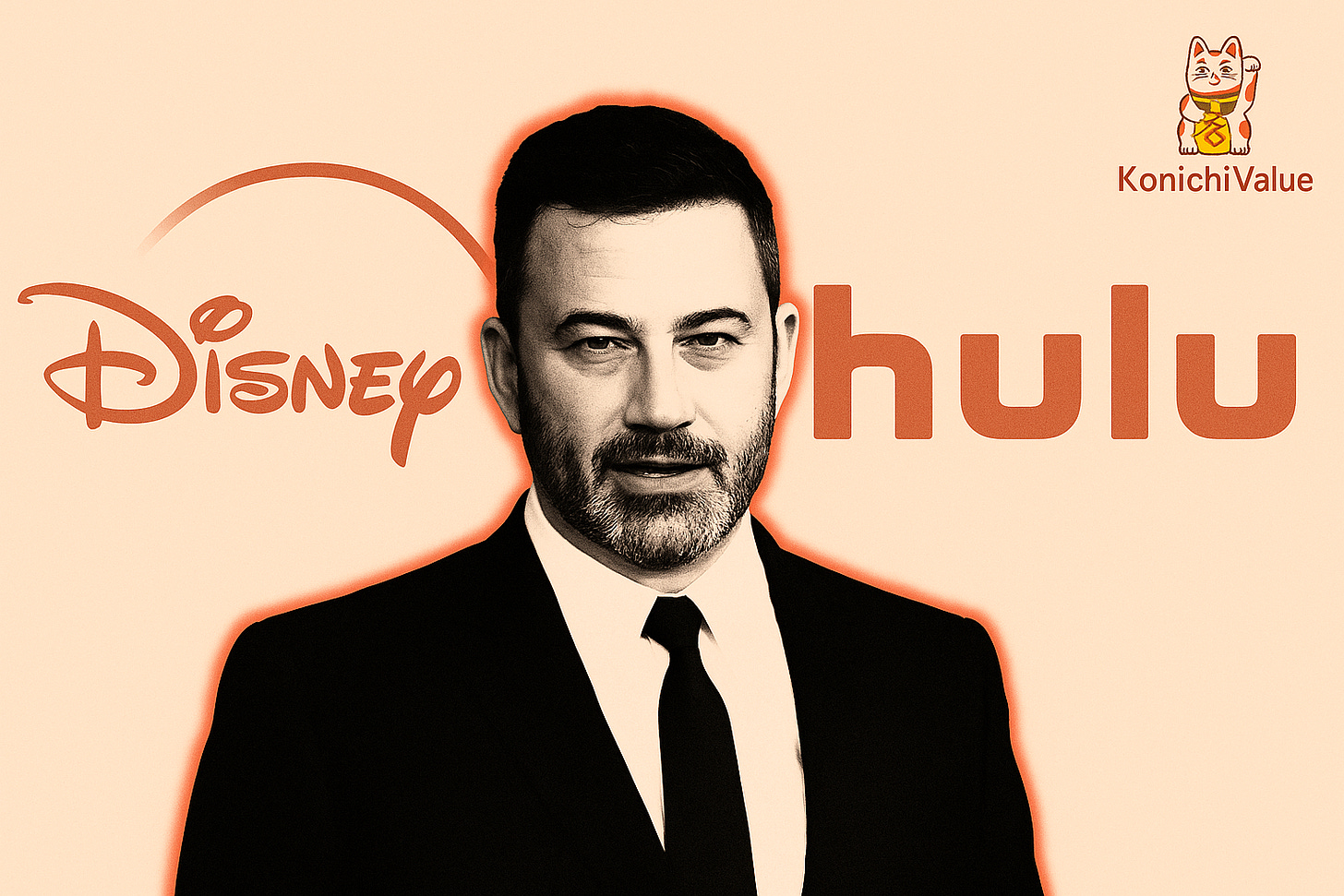I know this is not my lane, but I just needed to get my opinion out on the recent Jimmy Kimmel/Charlie Kirk debacle. Heck, it is my platform and I write what I want! So here goes:
Firstly, I do not intend to discuss politics behind this, nor if I think it was right or wrong, but rather a fact we seem to have forgotten: Companies are not cowardly nor evil!
Keep reading with a 7-day free trial
Subscribe to KonichiValue Japan to keep reading this post and get 7 days of free access to the full post archives.



